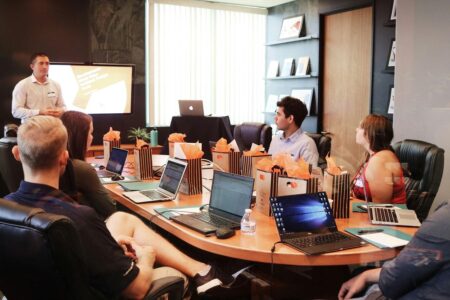Much of the recent news cycle has pitted the United States vs. the rest of the world. Certainly, the imposition of significant tariffs on much of the world will have a deep and lasting effect on the global economy – and not in a good way. The conventional wisdom is that the startup sector has been spared the impacts of tariffs because startups are often service providers in tech, software, web, crypto, AI etc. But a large part of the startup sector is products – in energy, agriculture, biotech, pharmaceuticals and manufacturing. All connected by a global supply chain. And here, unfortunately, these tariffs will accelerate another unfortunate trend for the United States – the fact that the rest of the world is building innovation and entrepreneurship ecosystems that are catching up to America’s.
America’s advantage in innovation commercialization will erode as a direct result of the 50% funding cuts to the National Science Foundation and 40% to the National Institutes of Health. Over the last 20 years, nearly every drug approved by the US government for prescription to patients started from research funded by NSF or NIH. At the same time, in Asia, governments are setting up research arms, replicating the US Small Business Innovation Research Program, and creating the infrastructure to become leaders in emerging technologies.
In 2024, according to Startup Genome, China’s investors poured over $80 billion into startups, Indian investors $40 billion, while Tokyo’s rapidly developing startup ecosystem has grown to $26 billion annually in just 10 years or so of targeted efforts. Within China, Beijing, Shanghai and Hong Kong all have startup ecosystems valued over $10 billion each. To date, only the Bay Area, Boston and New York hit that threshold in the United States regularly.
Asia’s startup ecosystems are also beginning to show maturity in the form of investors, consultants, accelerators and tech culture. One example is the success of companies like Guardian Ventures. A combination of investor, consultant and motivational coach, Guardian Ventures was founded by an entrepreneur, Raikk Chan Kok Woei after several exits. Guardian Ventures is an example of a company that helps its portfolio companies raise money, create a unique corporate identity, develop product market fit, go to market strategy and leadership development.
It used to be that only US-based investors would take a comprehensive approach to helping their portfolio companies. The most successful American VCs invested in founders and helped them with everything – manufacturing, legal, PR, HR, manager recruitment and so many other things, to ensure that the founders focused on the technology development and intellectual property. Guardian is an example of an Asian investor that provides all of these services to its portfolio companies as well. They refer to their model as “growth hacking”. According to Woei, “growth hacking is about understanding your customers better than they understand themselves and using that insight to drive growth. We position them as well, which is about clarity.”
According to data from the US National Institute of Standards and Technology, nearly 65% of innovation and patents come in the manufacturing sector – where Asia is way ahead. So, when Guardian Ventures invests in and supports companies like Starwise, a Malaysia-based technology accessories provider. In addition to taking an equity stake and governance roles, Guardian Venture also served as a consultant and implemented a comprehensive turnaround strategy, focusing on three critical areas: strategic repositioning, rigorous location analysis, and restructuring operations through advanced retail technology solutions. Starwise repositioned itself to have a retail focus and invest in new tech accessory development and now has $60 million in annual revenue and is preparing for an IPO in Malaysia. We hear about this type of comprehensive engagement from Silicon Valley stalwarts like a16z and General Catalyst, but not regularly from Asia.
Silicon Valley has invested a lot in the Trump Administration to prevent regulation in sectors like artificial intelligence and crypto currency. But they are also a small part of the global economy. The largest sectors globally are product companies – pharmaceuticals, health care, energy, agriculture, consumer products, automotive, logistics, and aerospace. The current tariffs risk a loss of American leadership in these industries. Investors and startups, in the short term, will no longer focus on Silicon Valley and the US investors, but might instead try to find an investor like Guardian Ventures and large, growing local markets in Asia and elsewhere.
Read the full article here











